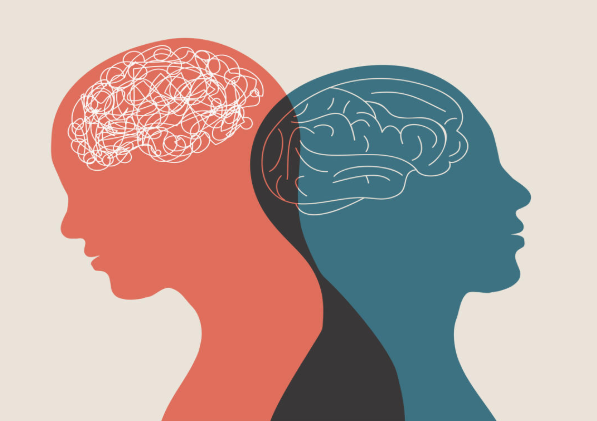The Importance of Mental Health Check-Ins for Kids
As parents, caregivers, and educators, we all strive to ensure that children grow up healthy, happy, and resilient. While physical health often receives significant attention, mental health can sometimes be overlooked, especially in younger children. However, just like adults, kids experience emotional and mental health challenges, and these can profoundly affect their well-being, behavior, and development. Mental health check-ins for kids are essential in fostering positive emotional well-being, identifying potential issues early, and providing the support needed for a healthy childhood.
1. Early Detection of Mental Health Issues
One of the most important reasons for regular mental health check-ins is the early detection of any emotional or psychological struggles a child may be facing. Children may not always have the language or awareness to express their feelings or may not even realize they’re experiencing anxiety, depression, or other mental health concerns. Regular check-ins create an open space for them to share their thoughts, and caregivers can detect potential red flags early.
Common signs that could indicate mental health concerns include:
- Sudden mood changes or irritability
- Withdrawal from social interactions or activities they previously enjoyed
- Difficulty concentrating or a decline in academic performance
- Excessive worry or fear
- Physical symptoms such as headaches or stomachaches without a clear cause
By identifying these signs early on, parents can seek professional guidance and support, preventing more serious mental health issues from developing later in life.
2. Reducing the Stigma Around Mental Health
Talking about mental health in a positive and supportive way can help reduce the stigma that often surrounds it. Kids who feel comfortable discussing their feelings and emotional struggles are less likely to internalize negative beliefs about seeking help. Regular mental health check-ins provide opportunities to normalize the conversation around feelings, self-care, and seeking support when needed.
When children grow up in an environment where mental health is openly discussed, they are more likely to develop healthy coping strategies and emotional intelligence. This sets the foundation for better mental health management in adulthood.
3. Supporting Emotional Intelligence and Regulation
Mental health check-ins can play a significant role in helping children develop emotional intelligence—the ability to recognize, understand, and manage their emotions. By discussing emotions regularly, children learn how to identify what they are feeling and why. This awareness is a vital step in helping kids regulate their emotions effectively.
For example, if a child feels anxious before a big test or event, parents can talk them through how to manage those feelings, providing strategies like deep breathing, positive affirmations, or mindfulness. Over time, children who are taught how to navigate their emotions grow into more self-aware individuals with better emotional regulation skills.
4. Fostering a Sense of Security and Support
Children thrive when they feel secure in their relationships with caregivers. Regular mental health check-ins strengthen the bond between a child and their caregiver by demonstrating that their emotional well-being is important. These check-ins send the message that it's okay to have tough days, that their feelings matter, and that they can turn to trusted adults for support.
A sense of security is crucial for healthy development. Knowing that they have a support system can help children manage stress, build resilience, and cope with challenges more effectively.
5. Encouraging Healthy Coping Mechanisms
As children face challenges, whether at school, in their friendships, or with their family, mental health check-ins provide a perfect opportunity to introduce and reinforce healthy coping strategies. Instead of resorting to unhealthy behaviors like avoidance, aggression, or substance use, children can learn to cope in more constructive ways, such as:
- Talking about their feelings
- Journaling or drawing to express emotions
- Physical activities like sports or yoga
- Meditation or mindfulness exercises
Teaching kids how to cope with stress and difficult emotions equips them with tools that will serve them throughout their lives.
6. Enhancing Social and Academic Performance
Mental health has a direct impact on a child’s ability to succeed in school and social settings. When children feel overwhelmed or struggle with their emotions, it can be difficult for them to focus on learning, engage with classmates, or perform well in academic settings. Regular mental health check-ins help to ensure that children are emotionally ready to succeed in these areas.
By addressing mental health concerns early, kids are more likely to stay engaged at school, build strong relationships with peers, and enjoy learning. This, in turn, leads to higher academic achievement and greater social development.
7. Preventing Long-Term Mental Health Challenges
Mental health struggles that go unchecked during childhood can lead to more significant challenges later in life, including chronic anxiety, depression, and other mental health disorders. By providing regular mental health check-ins, caregivers can intervene early to provide appropriate support, therapy, or counseling services, which may help prevent these issues from becoming lifelong struggles.
Mental health challenges often start in childhood, and research has shown that addressing these issues early can lead to better outcomes in adulthood. Supporting a child’s mental health from a young age can set them on a path to emotional well-being and resilience that lasts throughout their life.
8. Building Resilience
Resilience—the ability to bounce back from challenges—is a vital life skill. Regular mental health check-ins help children build resilience by encouraging them to face their problems, talk through their feelings, and seek solutions. This process teaches them that difficulties are a normal part of life and that they have the strength to overcome them.
Children who are regularly encouraged to check in with their emotions and talk about their experiences are more likely to develop the coping skills they need to deal with setbacks, failures, and disappointments in the future.
9. Strengthening the Parent-Child Relationship
Mental health check-ins create a space for open communication between children and their caregivers. This open dialogue fosters trust, strengthens relationships, and allows parents to better understand their child’s needs. Children who feel comfortable expressing themselves are more likely to seek guidance from their parents when they face difficulties in the future.
Regular check-ins also give parents the opportunity to provide emotional support, guidance, and reassurance, further enhancing the parent-child bond.
10. Encouraging Self-Awareness and Self-Care
Finally, mental health check-ins teach kids the importance of self-awareness and self-care. When children learn to recognize their emotions and take care of their mental health, they are more likely to carry these habits into adulthood. Regularly reflecting on feelings and practicing self-care, whether through relaxation techniques, hobbies, or seeking help when needed, becomes part of a child’s overall wellness routine.
Mental health check-ins for kids are vital to their overall well-being. By fostering emotional awareness, open communication, and healthy coping mechanisms, these check-ins lay the foundation for a lifetime of good mental health. Parents, caregivers, and educators play an essential role in supporting children’s mental health, ensuring they have the tools to manage their emotions and challenges as they grow. In a world where mental health is often overlooked, regular check-ins are a small yet powerful way to make a big difference in the lives of our children













